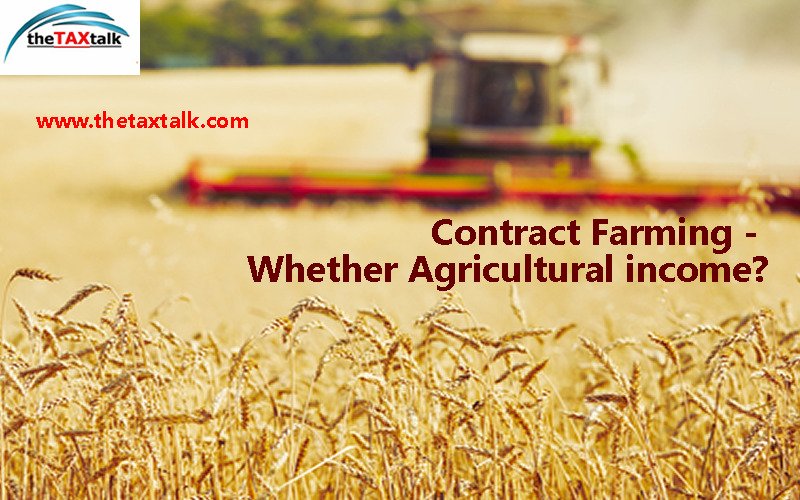![]()
Contract Farming – Whether Agricultural income?
Short Overview Income from contract farming done by assessee cannot be treated as agricultural income and that the assessee is not eligible to claim exemption under section 10(1) in respect of such income.
Assessee-company was in business of cultivation, production and marketing of hybrid seeds. It earned revenue from 3 kinds of activities, namely, (i) growing, processing and sale of seeds from owned lands and leased lands; (ii) growing, processing and sale of seeds from contract farming and; (iii) purchase and sale of imported seeds purchased from market. AO disallowed the assessee’s claim of exemption under section 10(1), which was confirmed by CIT(A).
It is held that The High Court in assessee s own case for earlier assessment years held that contract farming done by assessee cannot be treated as agricultural income and that the assessee is not eligible to claim exemption under section 10(1) in respect of such income. In instant case, admittedly, the assessee carried out the activities under the same 3 categories, as considered in preceding assessment years by the High Court and the only income upheld by the High Court to be in the nature of business income was revenue generated from contract farming. However, during assessment year under consideration, the assessee did not provide any details regarding the revenue generated out of each 3 streams. Therefore, the matter was remanded to AO for fresh consideration. Further, the assessee was directed to categorize the income earned by it under the 3 categories and the AO was directed to disallow the deduction claimed under section 10(1) only in respect of the income earned from growing, processing and sale of seeds from contract lands as per the observation of the High Court in the assessee s own case.
Decision: Matter remanded.
IN THE ITAT BANGALORE
B.R BASKARAN, A.M. & BEENA PILLAI, J.M.
Namdhari Seeds (P). Ltd. v. Dy. CIT
ITA No. 830-831/Bang/2018
23 September, 2021
Assessee by : Suman Lunkar, C.A
Revenue by : Pradeep Kumar, CIT (DR)
ORDER

